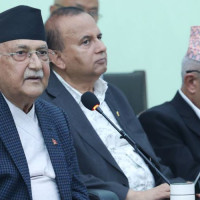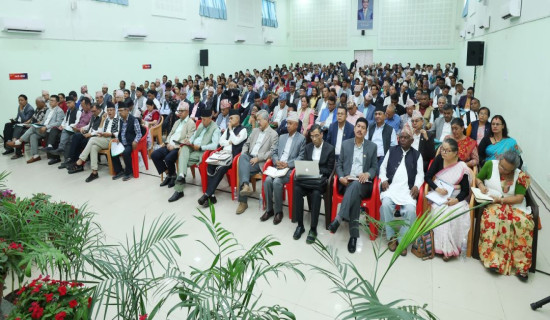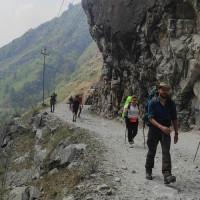- Monday, 21 July 2025
Use Smartphone Safely
In Nepal, smartphones have reached almost every corner, from busy offices in Kathmandu to small tea shops in Rolpa. Farmers check weather forecasts, migrant workers send money home using apps, and students attend online classes or prepare for exams. This growing use of smartphones has made daily life more convenient, but it has also opened the door to new types of digital fraud and scams. Many of us are not fully aware of how to protect ourselves online. As a result, thousands fall victim to simple tricks that could have been avoided with just basic knowledge.
One of the most common scams involves phone calls or text messages claiming, “You have won a bumper lottery!" The caller then asks the person to send a few thousand rupees as a processing fee or tax. Hoping the prize is real, many send the money, only to find the number switched off afterwards. Others are tricked into giving away their bank OTP or mobile wallet PIN by callers pretending to be from the bank, Esewa, or Ncell. What many people don’t know is this: no bank, wallet company, or office will ever ask for your OTP or PIN over the phone. It is a private code sent to you to protect your own money. If you share it, you’re handing your wallet to a thief. This happens not because people are careless, but because digital education has not kept pace with digital access.
There are also risks we don’t think twice about. Many people still use phones without any screen lock, leaving their entire digital life, banking apps, photos, and messages open to anyone who picks it up. Others download unknown apps from Facebook links or TikTok ads, not realising these apps can secretly steal personal data or track everything they type. Public Wi-Fi, which is now available at many restaurants, hotels, and even government offices, feels like a free bonus, but it can be dangerous if you use it to log into your bank or send money. Hackers can use these networks to access your information. And then there are the messages we receive daily: “Click here to win a mobile” “Watch this shocking video” or “You have a government notice”. These links often contain hidden viruses or phishing traps designed to steal your passwords or install unwanted software on your device.
Families buy a phone for their children or elderly parents without explaining how to use it safely. This creates a situation where people are using powerful tools without basic instructions, like giving someone a motorcycle without teaching them how to brake. Even in cities, many people don’t bother to activate app locks, update their passwords, or check app permissions. The false sense of “it won’t happen to me” is what scammers depend on.
The solution is not complicated. People need to follow a few simple habits: never share OTPs or PINs, always lock your phone and sensitive apps, avoid downloading from untrusted sources, and don’t click random links. Equally important, they must talk about these issues at home. As our country moves toward digital banking, digital education, and digital governance, we must also build digital awareness: not just in the cities, but everywhere.
Technology is a wonderful tool, but only if used with care. The next time your phone rings with a strange offer or you receive an exciting message with a link, pause. Ask yourself: is this real? Use your common sense. Don’t trust, don’t share, and don’t click. In this digital age, that small moment of doubt can save you from a very big regret.





-square-thumb.jpg)










